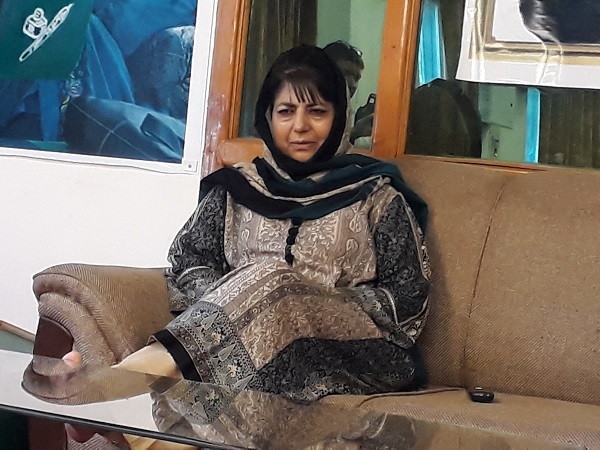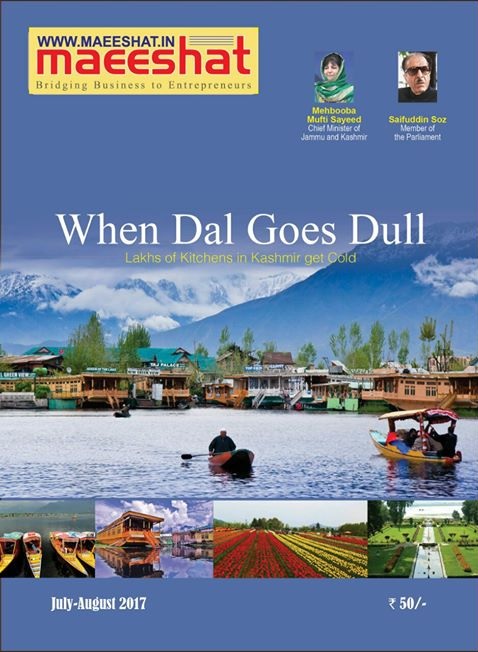
by admin | May 25, 2021 | Muslim World
 By Arul Louis,
By Arul Louis,
United Nations : Pakistan’s Prime Minister Imran Khan’s phone call to Secretary-General Antonio Guterres centered on Kashmir, according to a UN spokesperson, who said that it was “only normal” for Guterres to speak to heads of government,.
“I can confirm to you that the phone call did happen and it centered on the issue of Kashmir as brought up by the prime minister,” Guterres’s Spokesperson Stephane Guterres told reporters here on Friday.
He did not provide any details of their conversation that took place on Thursday.
Asked by a reporter to react to Indian External Affairs Ministry Spokesperson Raveesh Kumar’s reported remark that Pakistan should mind its own business and Kashmir is a part of India, Dujarric said, “Our position on Kashmir has been reiterated, there is an observer group as mandated by the Security Council.”
The 113-member UN Military Observer Group in India and Pakistan (UNMOGIP) established by the security council monitors the cease-fire in between the two neighbours in Kashmir.
Dujarric added, “The prime minister called, wanted to speak to the secretary-general. It is only normal that the secretary-general speak to heads of government and heads of state, and, as I said, I can confirm that the call took place and that the prime minister raised the issue of Kashmir.”
Radio Pakistan reported that Khan asked Guterres to send a commission of inquiry to investigate the human rights situation in Kashmir as recommended by former UN Human Rights Commissioner Zeid Ra’ad Al Hussein earlier this year.
Although Guterres has backed Zeid’s call for the investigation and the current Commissioner Michelle Bachelet has endorsed it, neither the Human Rights Council nor other UN bodies have acted on it.
India has said that Zeid’s report on human rights violations in Kashmir and the proposal for an investigation were “clearly biased”.
UNMOGIP continues to operate under the security council mandate that grew out of a 1948 resolution that set up its predecessor organisation following the fighting that started in 1947 when Pakistani troops disguised a tribesmen invaded Kashmir soon after Independence.
India maintains that the UNMOGIP has no role because of the 1971 Simla agreement between Prime Minister Indira Gandhi and then-President Zulfikar Ali Bhutto stipulating that Kashmir was a bilateral issue with no role for third parties.
(Arul Louis can be reached at arul.l@ians.in and followed on Twitter @arulouis)
—IANS

by admin | May 25, 2021 | Interviews

PDP chief and J&K Chief Minister Mehbooba Mufti (Photo:Maeeshat)
By Danish Reyaz for Maeeshat
When the entire Jammu and Kashmir was in grip of Ramadan celebrations, PDP chief and state Chief Minister Mehbooba Mufti was praying for arrival of tourists in the valley. Since there were a lesser number of tourists this year, she was deeply concerned — if tourists didn’t visit the valley during this season, the state economy would be devastated. The famous Dal Lake was at its splendor, still most of the hotels in the neighbourhood were unoccupied. The Shikaras at the lake waited for tourists but there were hardly any people to enjoy the ride. Markets were empty since there were no buyers. At Sonmarg hills, horses were ready for the ride but there was none to put his feet in the saddle. The beautiful valley was gripped by some unknown fears.
It seems that the decision of the state government to invite journalists, writers and travellers from across the country for FAM tour, organised in collaboration with the Department of Tourism J&K, had stemmed out of this anxiety. During the meeting with the delegation at her residence in Srinagar, she kept repeating that J&K is the valley of peace and harmony and people must visit it to free themselves from the fears. She stressed, “Yes, there is fearful atmosphere and tense situation but it is only there on the borders. But this is also a fact that because of these conditions tourists are never troubled. Tourists are honoured and protected everywhere since the issues are between the Government of India and the people of J&K. It will be great if people from different parts of the country visit the valley, enjoy its splendid beauty and take pleasure of the Kashmir delicacies.”

Maeeshat Magazine Cover Page (July-August 2017)
As ours was a multi-faith delegation of journalists and writers, she highlighted the plural culture of society.
“We have Amarnath temple, Akhir Bhawani Mandir, Mata Vaishnodevi Mandir, Shiv Khori, Shankar Acharya Mandir, Martson Mandir etc and it is a fact that Muslims make all the suitable and comfortable arrangements for these pilgrimages. However, such a situation has been created that now people are afraid, so much that they even avoid visiting the valley. On the other hand, you won’t find a single Kashmiri who has not visited the shrine of Nizamuddin Auliya in Delhi and Khwaja Moinuddin Chishti in Ajmer. People go to Ajmer in large number to mark their religious duty but hardly anyone from there comes to visit the shrines of great saints in Kashmir and other religious places like Khanqah-e-Maula Ali, Hazrat Bal Masjid, Charar Shareef etc.,” she said.
Mehbooba left no stone unturned to convince us that it is tourism, nothing else, which will make the bond between Kashmir and the rest of India stronger.
“When tourist visit will increase it will automatically create a better personal cordial relationship with the local people. When trades will begin then mutual understanding and trust will also develop. The illusion will vanish but for that, people from the country must visit the valley.”
Fully aware that our delegation had several journalists, Mehbooba talked about negative presentation of the state in TV news channels of Delhi.
“In various parts of India, women have difficulty in venturing out at night but Kashmir is the only place where they are safest. Here girls can venture out at night without any hesitation and fear. When tourists roam on the streets whole day and then watch TV at night at hotels, they become suspicious about the intension of the media. Because, they cannot believe that the places they visited earlier in the day are having such a horrendous atmosphere as claimed by the media.”
Mehbooba is much miffed with the electronic media. She strongly says that Media has always worked towards tarnishing the image of Kashmir.
“The way minor skirmishes are reported and repeated whole day on TV channels, people are forced to believe that it is a routine in Kashmir. If a young lad pelted stones somewhere then after every news item his video will be played. Although stone pelters are very few in numbers, still a fearful atmosphere is being created by the media. And there is a side effect of such media coverage: As stone pelters are repeatedly shown on television they begin to assume themselves as hero. So, when the boys who are not part of stone pelting see their friends on TV they also feel proud of committing the act,” she said. “I, therefore, feel that the electronic media is badly affecting us in two ways. First, it’s misguiding our youth; and second it’s tarnishing the state’s reputation. The fact is that these mala fide stories aren’t just tarnishing Kashmir’s image they are also affecting the Jammu region, hence even Kashmiri pundits are also getting defamed and are facing the hardship. In other words, I can say that they are trying to create fear and hatred in the minds of the people. In case the situation turned hostile then it might turn out to be worse.”
In the hour-long meeting with delegation, the J&K Chief Minister also spoke about the state’s achievements and wished that they should also be highlighted by the media.
“In this tense atmosphere, our students are successfully passing the civil services exams. A Kashmiri kid is representing India in Commonwealth youth games and playing football for the country in Scotland. We have also begun bus services for women, introduced the Ladli scheme, established women police stations and have also launched Scooty for girls scheme. Millions of students are accomplishing their education but nobody promotes such positive news. Rather, media is keener about negative stories and it telecasts them day and night,” she said.
Before ending her speech, she boldly enticed Prime Minister Narendra Modi to resolve the issue of Kashmir.
“The issue of Kashmir cannot be solved without talks; dialogue is needed to solve this issue. We want a solution only through dialogues. Mufti Mohammed Saeed and Atal Bihari Vajpayee had a better understanding of the case because they both used to listen to each other. I think, now Prime Minister Narendra Modi can only do something better since he has the nerves and potential to bring a solution. If he can’t bring a solution then nobody can! If he solved this issue then I am sure he will get the Nobel Prize for Peace,” said Mehbooba with the hope that her message and strong urge for peaceful resolution of the Kashmir issue would be conveyed to Delhi.



